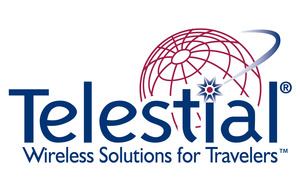Travel News
The Secrets to Lowering International Voice & Data Costs
Unlocking your phone
Unfortunately, all cell phones are locked if you bought them with a plan from a U.S. carrier. You can try to persuade your carrier to unlock it before leaving, but whether they do is their prerogative. I asked each carrier for its policies. Most of the responses were ambiguous and their websites offered little or no information.
Instead, I found them eager to sell special International data plans that do offer lower rates. But beware of the gotchas. If you go over, the rates skyrocket, in one case going from 49 cents to $20 per megabyte. And if you take a cautious approach and buy a larger data package, you’ll forfeit the unused minutes, effectively still paying a higher rate. You need to sign up for it as a recurring monthly plan and then cancel it after the trip.
Most of the carriers will unlock some of their phones after 90 days, but iPhones are excluded, due to it being heavily subsidized.
AT&T will unlock an iPhone after the completion of your two-year contract. Those who are in the middle of a contract can get their phone unlocked by paying an early termination fee of several hundred dollars.
Verizon and Sprint will unlock their dual band models, which work on both CDMA and GSM, after 90 days, but apparently not the iPhone.
Buying an unlocked phone
If you travel frequently out of the country, whether to Canada, South America, Europe or Asia, you should consider buying an unlocked phone as your primary phone, rather than buying a subsidized phone from the carrier. You can activate it with a major carrier without committing to a contract. I recommend one of the Nexus Android phones, available directly from Google for as little as $400, which will work on T-Mobile and AT&T.
Apple now sells an unlocked 16GB iPhone for $699. It works with any SIM card anywhere in the world, and on T-Mobile or AT&T in the United States. Another option is to buy an unlocked phone along with prepaid SIM cards from a company such as Telestial International, rated by its users as 4.8 out 5, according to Google.
According to Ken Grunski, the founder of Telestial, the company has served 2.5 million customers using its own network, buying bandwidth from other carriers. It offers a range of services and equipment including an unlocked quad-band phone with a SIM card for $59, a SIM card for voice and data for about 49 cents per megabyte and 49 cents per minute per call with free incoming calls, and a data-only SIM card for as little as 21 cents per megabyte. Telestial’s data SIM cards can be used in an iPad that has a SIM slot, in a MiFI card, or in a USB or external data modem.
These rates can offer a huge savings compared to the U.S. carriers’ rates. How much? These are some examples provided by Telestial using the carriers’ normal rates that do not require a special plan:
- To send a 100kb photo, Verizon charges up to $2, AT&T $1.95 and Telestial 4 cents.
- Streaming one minute of music from Spotify costs $38 on Verizon, $37 from AT&T and about 78 cents from Telestial.
- Ten rounds of Words with Friends cost $19 on Verizon, $20 from AT&T and 39 cents from Telestial.
Some of them will match Telestial rates, but only with a plan subject to the gotchas noted above. Telestial sells its products from its website and in some of the airport stores.
For more idea for making call abroad, check out:
- Travel Tip: Avoiding International Roaming Charges
- Travel Tip: Global Phones & Phone Plans
- International Cell Phones, Data Plans, MiFi Data Cards & Google Voice
- Travel Planning & Gadget Archives
By Phil Baker for PeterGreenberg.com. Phil Baker has more than three decades of experience in consumer and computer technology product development and program management. Check out his blog at www.philipgbaker.com.
Feature image credit Bigstock












